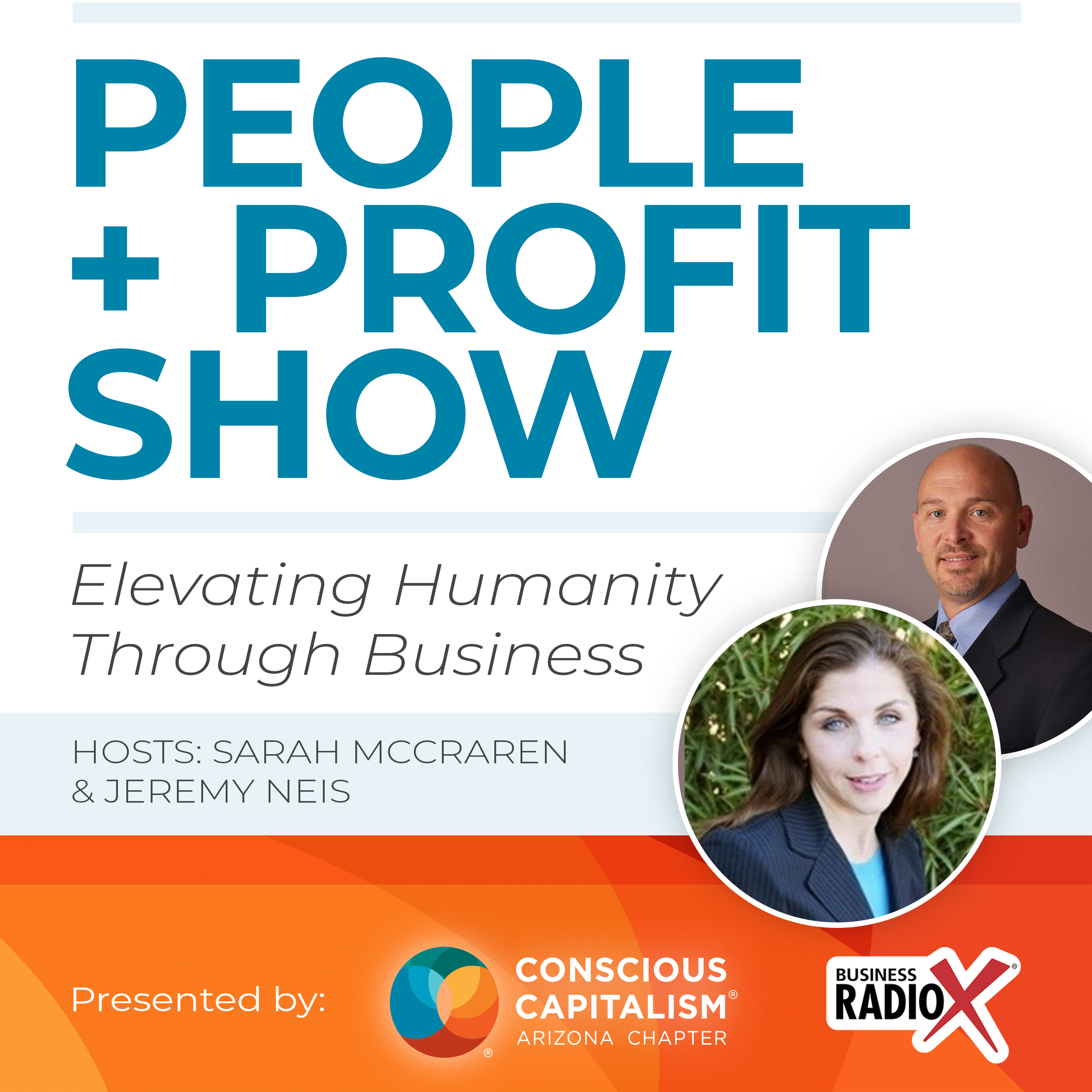On February 19, Craig Larson, CEO and Chairman of Starion Bank, took to the podium at Keyser to share some takeaways from his own conscious business journey as the 2nd generation leader of a community bank.
Undoubtedly, Craig’s journey was deeply influenced by his father Frank, whose people-first approach to banking, service and community-building made a strong impression on him from a young age. Craig frequently heard his father say, “The less worried I am about making money, the more I seem to make.”
Craig’s father purchased the family’s first bank in Oakes, North Dakota in 1969 and invited Craig’s mother, JoAndrea to join the business with him. “Today, our leadership team is still well represented by women.” He underscored the point by introducing his wife Shelley Larson, a family owner/shareholder who also joined the Bank Board of Directors in 2019.
Drawing through-lines from the bank’s early days to present day, Craig highlighted three key takeaways from his experiences to share with CCAZ.
1. Create a Strong Company Culture
“We’ve always worked very hard to create a workplace where people feel important. We try to get to know our employees, understand what drives them, and what’s going on in their lives and with their families.”
Today, the company’s PTO donation policy is testament to its caring culture: over the past 7 years, employees have donated 4,000 hours (500 days) to help their colleagues faced with long-term medical issues. Additionally, the company sponsors a financial assistance program for employees who find themselves in hardship. Employees can nominate their co-workers to receive the help.
In turn, Craig says, employees who feel cared for demonstrate concern for the community. In one market, the bank committed to help with a fundraiser and raised $2.7 million for the cause. Employees not only participated in fundraising activities; they also made contributions themselves. As a result, the bank was listed among the 10 biggest givers in the overall campaign.
2. Tell Your Story
In the early days, founders Frank and JoAndrea modeled a sincere interest in getting to know their staff, frequently visiting branches and engaging conversations. Today, as Starion has grown with branches in multiple states, they’ve had to be more purposeful about articulating their mission, vision and values, both internally to employees and externally to the community.
Storytelling is critical to bringing the community along in the conversation. As a privately held company, they don’t publish an annual report, but they issue a community report.
He recalled an incident where he learned the importance storytelling by not doing it. One of the bank’s plans included converting an existing bank site to sustainable landscaping. Starion aimed to lead the way in its community, showcasing North Dakota’s native plants and demonstrating low water usage in the design. But the changes were jarring and upset some existing customers and local residents. Branch employees found themselves fielding complaints as patrons aired their disapproval.
“We went there and met with employees and admitted we hadn’t communicated our intentions well to the community. We asked staff for ideas about what would help. We had a great meeting, and created signage about natural landscaping and water sustainability, integrating them into the design. We featured our plans and our intentions on the website. The staff helped us tell our story in a better way.”
3. Find Good Mentors and Advisors – and Listen!
Finally, Craig shared the benefit of bringing in advisors and mentors, both organizationally and personally. He recalled the process of bringing outside directors onto their board. As a family business, Starion moved toward this change incrementally.
“At first, we could tell the board was giving too much deference to the owners—you could watch the eye contact drift to Frank and Craig,” he laughed. They then committed to bringing in a majority of outside directors. “Finally,” he remembered, “one brave soul asked me at a meeting, ‘Craig, what happens if you become incapacitated or pass away?’ We had a great conversation. I realized the question wasn’t about me. It was about the organization, and that completely shifted the sense of trust.” He emphasized finding people who will lean into important questions with you, even when the subject is uncomfortable. “When you find people who really care, listen to them and really consider their feedback.”
In the years from 1994 – 1997, when the bank’s growth outpaced his capabilities as a young leader, Craig not only took on a mentor, but hired him as president. “We were experiencing incredible growth and were in a great place, but I knew I didn’t yet have the experience at 31 to lead the bank.” He flew to meet with Tim Stern, an experienced banker whose name had continually come up as he searched for someone who could guide the company through its next phase.
“It was awkward, meeting with someone who could become my boss.” Stern told him he would lead the bank, teach him everything he knew about banking, and step down after three years. Craig remains grateful for Tim’s contributions during a complex period of growth and specifically recalled watching him lead and engage people. After three years, Craig became president; Tim stayed for another eight months to smooth the transition and remained an influential mentor to Craig after leaving the bank.

University of Mary Press honored Starion Bank founder Frank Larson with publication of a commemorative book to celebrate the bank’s 50-year anniversary.
We sometimes talk about the importance of long-term vs. short-term investment in the practice of Conscious Capitalism. In Craig’s story of taking over a second-generation family business, a focus on people from one generation to the next is paying dividends. As the organization grows, so too the impact of this business led by two generations of conscious leaders.
“It’s one thing to talk about building conscious culture—it’s another to hear from someone who’s living it. I wrote down what his father told him, “The less I worry about making money, the more I make.” It reminded me of that quote in Conscious Capitalism about happiness – you can’t chase it! You just have to surround yourself with people who are working to make a difference. That’s what we’re trying to do.”
– Attendee Aaron Suzuki of Co-manity, a co-working space in Gilbert





